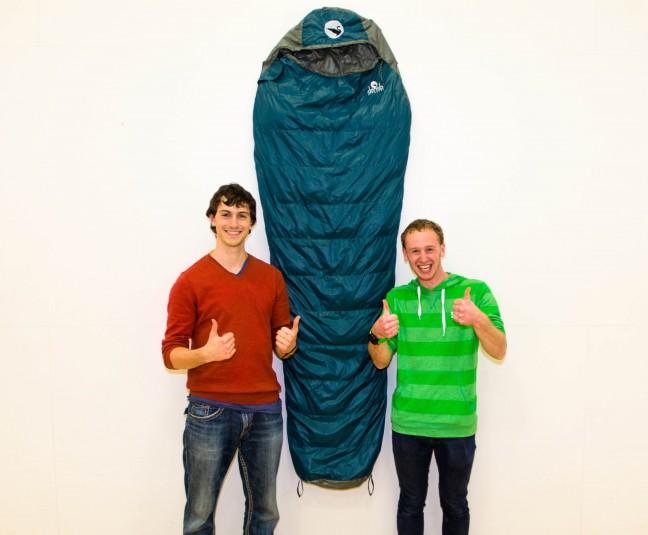What began as a joke between roommates became a reality when two lifelong best friends and juniors at the University of Wisconsin pursued filling a void they noticed in environmentally-friendly outdoor gear.
Jared Sandlin and Jared Burris recently created a sleeping bag named the Rama Llama using llama fur as insulation. The sleeping bag can maintain a constant temperature in environments ranging from 20 to 70 degrees, Burris said. This 50-degree temperature range is unheard of on the market right now, he said.
The project originally began with the idea to use polar bear fur to line sleeping bags, Burris said. They found that polar bears’ ability to endure a wide range of temperatures is attributed to its hollow hair fiber, and he said they discovered llamas also possess this unique type of fur.
“After finding that out, we bought a $40 REX sleeping bag, tore it apart and bought Washington State prize winning llama fur, threw that in and tested it out for ourselves,” Burris said.
The Rama Llamas’ wide temperature range is not the only unique element of the sleeping bag, as it is also ethically sound, Sandlin said.
The current insulations used are either a synthetic petroleum polymer or duck and goose down, Sandlin said. The synthetic polymers give rise to pollution and though the goose and duck down is not inherently unsustainable, it comes from a volatile industry, he said.
Unlike these industries, the harvesting of llama fur causes no harm to the animal and the handlers of the animals take great pride in their work, Sandlin said.
Burris and Sandlin advanced their idea when they developed partnerships with llama farmers from Bolivia, Chile and as of last week, a cooperative in Wisconsin, Burris said.
“It was a lot of research,” Burris said. “A large part of getting this started was sitting online and figuring out how to make a sleeping bag, what is currently being used to do so, and then figuring out how to do it ourselves because no one has really done this before.”
The Rama Llama surpassed its goal for money pledged on the start-up website Kickstarter, reaching the $15,606 mark from a total of 119 backers.
Burris and Sandlin named their company Deneb Outdoors, after the 19th brightest star in the universe, which is three times farther away from Earth than the average star and more luminous than the sun and visible from almost anywhere.
“In 10 years, we hope to have a full line of product,” Burris said. “Ultimately we want to be the next North Face and expand into a community-based outdoors facility.”
If all goes as planned, the same technology will be used to make jackets available to students on campus in the fall, Burris said.
The next step for Deneb Outdoors is to distribute their first order of about 50 sleeping bags to testers, professional athletes, celebrities and anyone with a large outreach in order to build a reputation in the outdoor market, Sandlin said.
“We are tremendously thankful to the UW faculty, organizations and students for all of their support,” Sandlin said. “The community here has been phenomenal.”













